Should Parents Let Children Use Anonymous Cash App?
Should Children Use Anonymous Cash App?
ALL TOPICS
- Social App Review
-
- Best texting app for kids
- ChatGPT Detectors
- ChatGPT Examples
- TikTok App Review for Parents
- ChatGPT Impact on Education
- Discord App Review
- Jailbreak ChatGPT
- Age for TikTok
- Dangerous Live broadcasting apps
- PopJam App Review for Parents
- Is Funimation Safe?
- Random video chat app
- Stranger chat apps review
- Anonymous chat apps for Teens
- Bigo live app review
- Is Google hangouts safe?
- Game Review
- Other Reviews
Dec 12, 2025 Filed to: Trending App Review Proven solutions
What is Anonymous Cash App?
The cash app is a mobile money transfer platform that allows users to send or receive money. Users from around the world in specified locations can use the app to send and receive money on their phones for free. The application is available on Android and iOS for free. It’s easy to download as all you need to do is access the internet and do a search for it on Google Play Store or iPhone store, and you get access to the app. You can then download it on your phone. Users on the cash app send or receive money anonymously. The application has an age restriction of 18 years. However, the application notes older teens of between 14- 17 years can use the app. Meanwhile, they have to consider the risks associated with using an anonymous internet application.
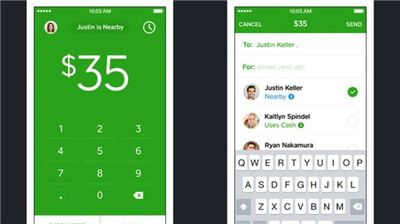
Why Should Parents Know about Cash App?
Parents ought to know that Cash App enables users to send or receive money through a smartphone device. Despite the terms of applications requiring users to be at least 18 years of age, the app is rated on Google play for ages four and above.
Users register on the application using either their wireless phone number or personal email address. Parents should become aware that Cash App requires users to register using Mastercard, Discover, or Visa debit card. In addition to other information on bank accounts for depositing the application’s payments. It is worth noting that Cash App protects this information through the 128-bit encryption, passcode, or fingerprint scanning.
On the other hand, parents ought to be aware that registering financial information on any third-party site regardless of the security level of that platform exposes the user to risks of having someone steal their information.
Most users complain about the platform verge between poor customer support, unauthorized charges, inability to gain access to funds in the account, and unauthorized charges. The application does not provide a call support line for customer service. Additionally, it also lacks a unique call line for customer service.
Nevertheless, users are only entitled to email ticket support and await a response. Some customers noted that they had sent emails and waited for such a long time before receiving a response. The application is an excellent platform for parents to fashion their teen’s budgeting. However, they should also monitor their children’s activity. The terms of service do dissuade the underage from using the application. However, if they must use the platform, the parents ought to provide strict guidelines.
Popular Cash Apps for Android and iOS
There are a couple of efficient cash applications for both Android and iOS users. These applications include:
1. PayPal - The oldest and most popular internet payment service. PayPal’s strict buyer and seller protection services make it a handy payment tool for both sending and receiving funds.
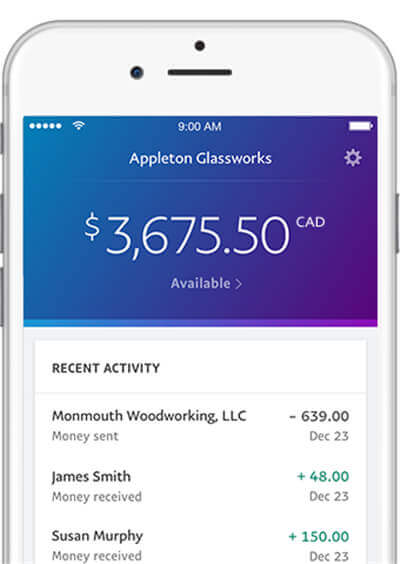
2. Venmo - The most amazing thing about Venmo is the negligible cost of making transactions. It comes in handy for sending and receiving cash from family and friends.
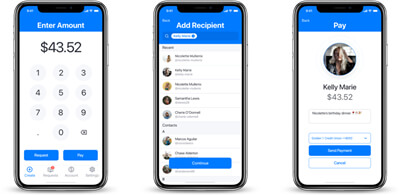
3.Zelle - This is a mobile app that allows you to move money from your bank account to your phone or to another bank account. It also enables you to send money from one person to another with ease.
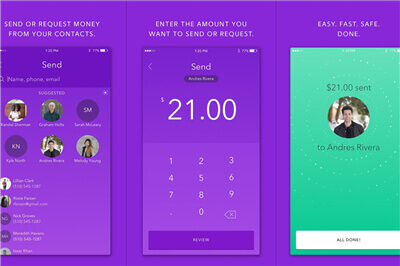
What Age is Cash App for and Could Teens Bypass the Age Limit?
Google Play Ratings state the recommended age for Cash App Users as four and above. However, in the application’s terms of services - Cash App advises an age bracket of 18 and above. The application is, however, open to older teens but with high monitoring from parents. Hence, no need for age bypassing if, at all, parents are to provide guidance on accessing the application.
What Can Parents do to Prevent their Children from using Anonymous Cash App?
Internet interaction applications are a breeding ground for pedophiles, criminals, blackmailers, and cyber thieves. It is, therefore, pertinent that children remain safe while using online platforms. Parents ought to implement the following mechanism to ensure the safety of their children.
- Keep track of information - parents should keep track of information on the payment accounts, the information interchange during transactions as well as the transaction recipients.
- Educate and maintain an open dialogue with the kids on the dangers of online applications.
- Set strict user guidelines and regulations to make sure the kids do not stray away from the key objective of having a cash application.
Moreover, it is also possible to make use of third party applications such as FamiSafe.
FamiSafe is a leading parental control application for monitoring children’s online activity and restrict app usage.
Track to Know Whether Teens Install Anonymous Cash App
FamiSafe is a parental control application that was developed to help parents track their children’s online activity. At the heart of FamiSafe is the understanding that parents need assistance to effectively parent their kids. FamiSafe equips parents with handy interactive tools and some awesome features that include location history, web filtering, location tracking, application block, and several other features.
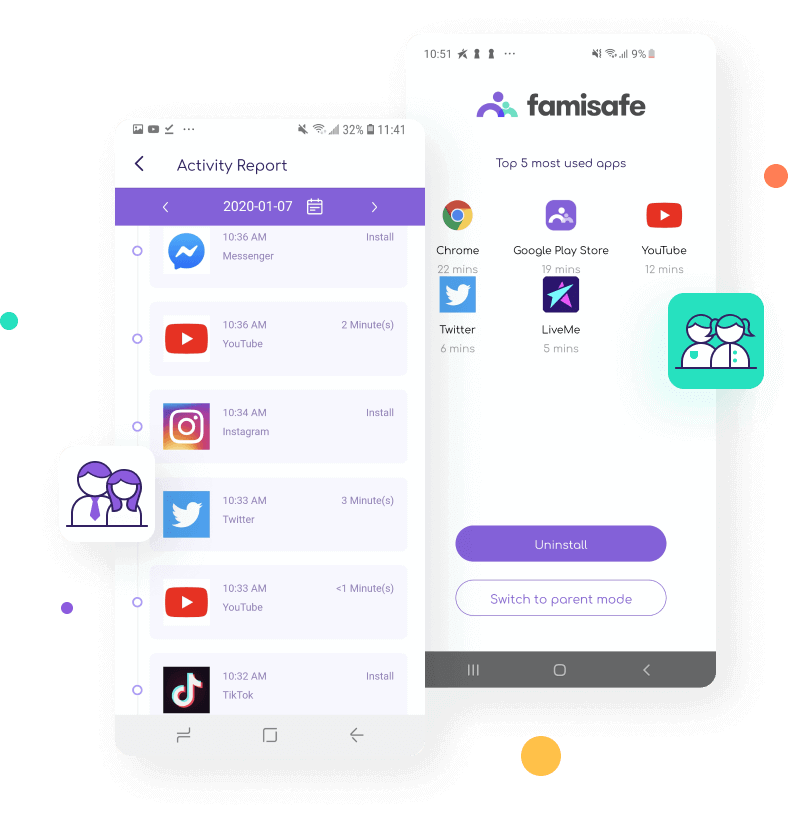
- Web Filter & Blocker
- Screen Time Limit & Schedule
- Location Tracking & Geo-fencing
- App Blocker & App Activity Tracker
- YouTube History Monitor & Video Blocker
- Social Media Texts & Porn Images Monitoring
Features of FamiSafe
Below are the main features of FamiSafe that position it as an important tool for parenting.
- Monitor – Provides a report on all the activities and websites that have been visited.
- Track – real-time location identification.
- Limit - Restriction of screen time and limiting usage of the application.
- Block – Blocks apps and filters on the web.
- Detection - Detection of suspicious content
Screen Time and Smart Schedule
This feature sets the amount of time that kids can be given access to their phones, thereby enabling them to focus on other areas of their lives, such as work and school. Parents can set appropriate timeframes through which kids can access particular sites on their phones. This enables the kids to work on their school work once that time elapses. The kids can also engage in different activities apart from accessing their phones once the allocated time elapses.
Browser History and Web Filtering
This feature on FamiSafe enables parents to have a glance at what their kids have been browsing. This feature also shows the sites the child has browsed and also deleted. It will give you the exact URL of the site. Parents can use this to filter out the sites that are deemed harmful to their kids by blocking access to these sites.
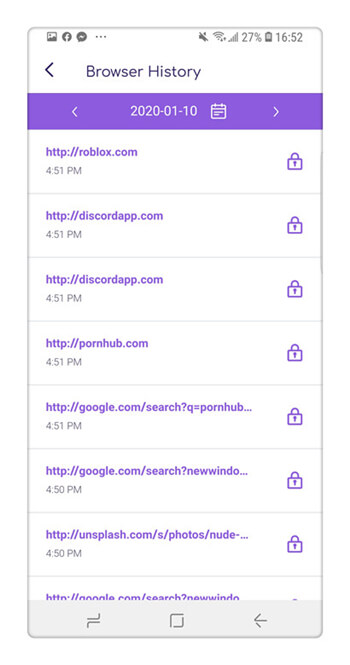
App Block and Usage
Parents also are given access to activity reports that show trends of how children spend their time on the internet. Armed with this information, you can track down the areas where your child spends most of their time on the internet. You will also get reports on the websites and apps where your child spends most of the time. You can then block sites and apps that are deemed to be harmful.
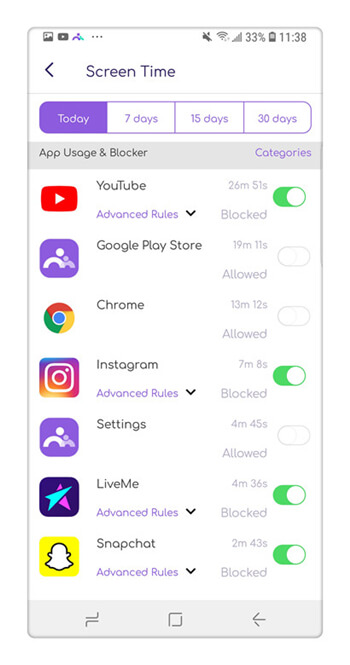
Conclusion
Parenting tasks have never been more difficult than in the technology age. With communication coming closer through social interaction spaces such as Facebook and applications like Byte, it is worth parents have maintained closer scrutiny on their kid’s online activity.



Thomas Jones
chief Editor